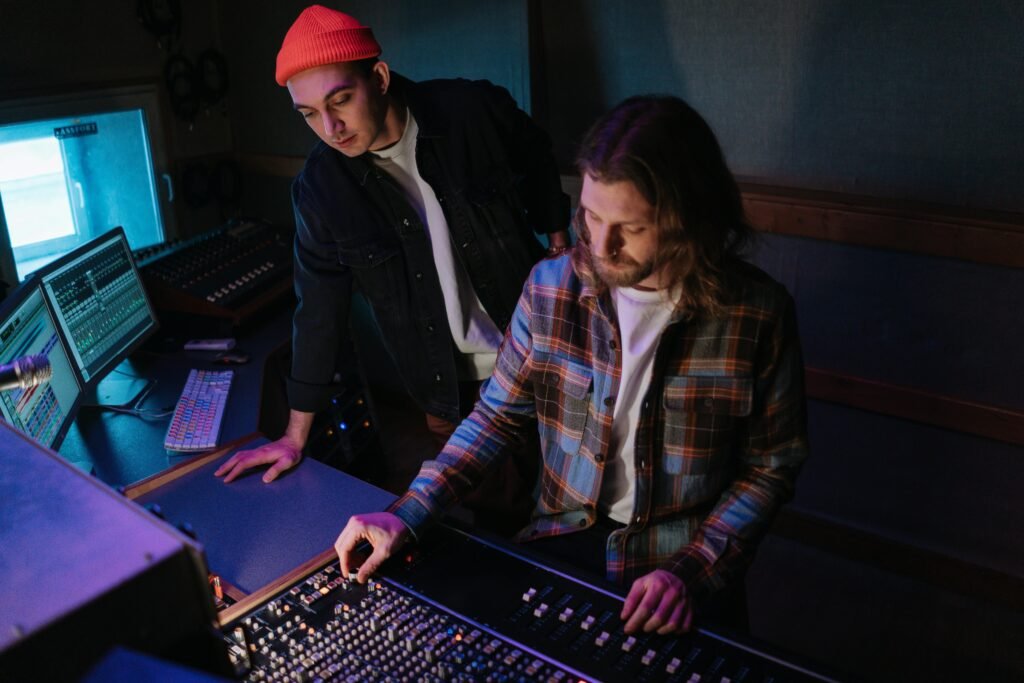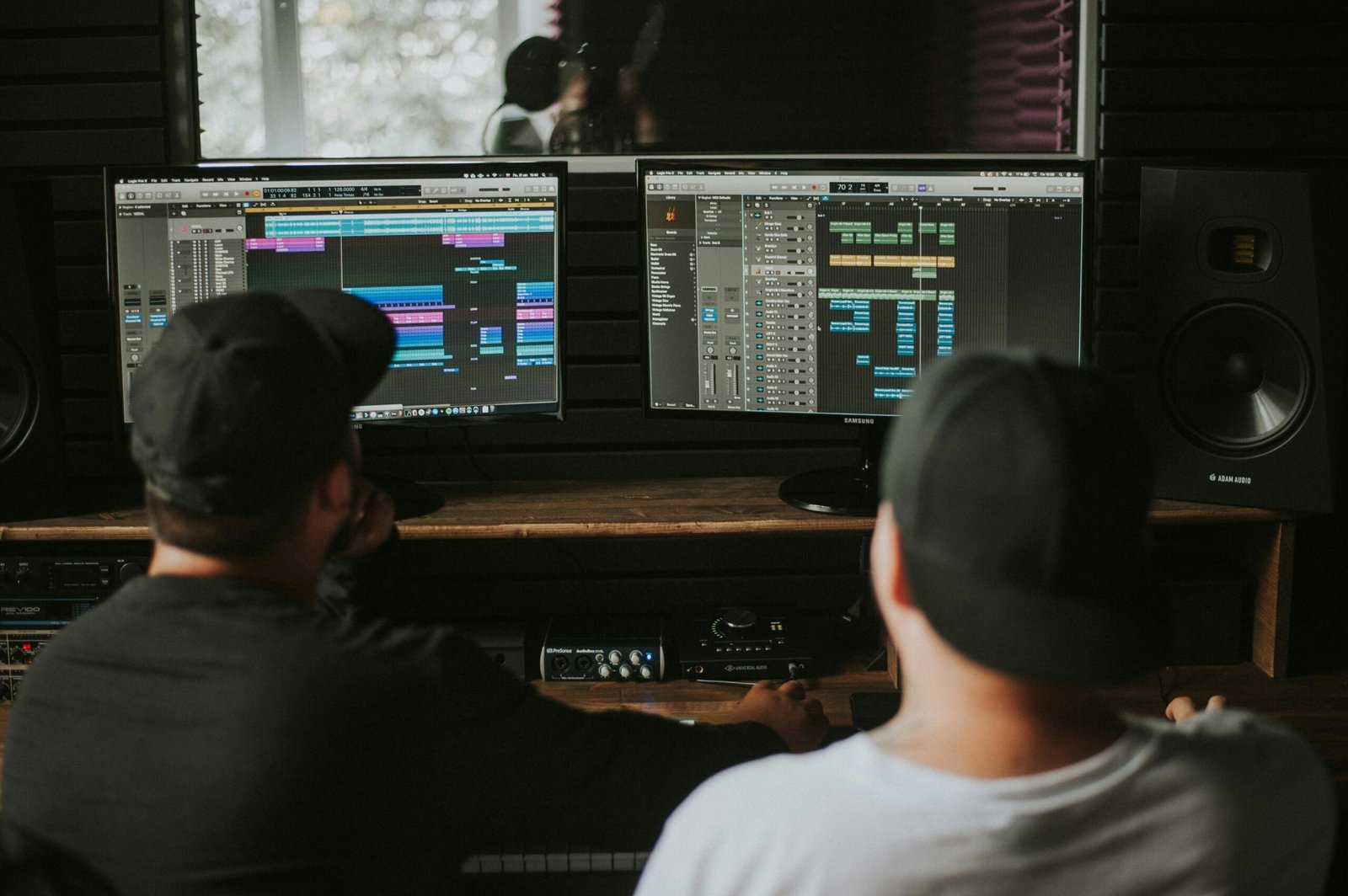Introduction
Wondering how to earn money making music? You’re not alone. Today, more musicians than ever are looking for smart and creative ways to turn their passion into a reliable income. The good news? There are countless opportunities out there — if you know where to look.
In this guide, we’ll share 21 proven ways to make money with your music, including real-life examples, practical tips, and insider advice to help you get started. Whether you’re a producer, singer-songwriter, band member, DJ, or beatmaker, these strategies are designed to help you build a sustainable music career on your own terms. From streaming royalties and music licensing to teaching online, selling merch, or getting paid for live shows — discover how independent artists around the world are creating multiple income streams and building a life around music.
Ready to learn how to monetize your music and take your career to the next level? Let’s dive in.

1. Perform Live Gigs: A Timeless Way to Earn Money Making Music
Live gigs are a cornerstone for musicians to earn money while connecting with fans. Whether at local venues, weddings, or festivals, performances offer exposure, build loyalty, and create income.
Examples:
- Ed Sheeran started with pub gigs before selling out stadiums.
- Local bands perform at restaurants or private events to grow their brand and audience.
Guidelines to Get Started:
- Start Small: Play at open mic nights, local events, or community spaces.
- Network: Build connections with venue owners and other musicians.
- Promote Yourself: Use social media to announce gigs, share updates, and sell tickets.
- Enhance Earnings: Sell merch or collect tips during performances.
2. Teach Music Lessons: Turn Your Skills into a Steady Income
Teaching music is a fulfilling way to share your expertise while earning a consistent income. Whether in-person or online, music lessons can provide immediate earnings and long-term passive income.
Examples:
- Teach beginner piano or guitar lessons locally.
- Offer virtual classes or pre-recorded courses online.
Guidelines to Get Started:
- Attract Students: Offer a free or discounted trial session.
- Expand Online: Use platforms like TakeLessons, Lessonface, or Fiverr.
- Build Passive Income: Sell video lessons on Udemy or Teachable.
3. Sell Merchandise: Boost Your Income and Build Your Brand
Selling merchandise is a great way to connect with fans and generate additional income while promoting your brand.
Examples:
- Taylor Swift pairs album releases with exclusive merch.
- Indie artists sell shirts, CDs, or signed posters at gigs and online.
Guidelines to Get Started:
- Start Small: Offer T-shirts, stickers, or caps.
- Use Print-on-Demand: Services like Printful or Teespring eliminate upfront costs.
- Sell Everywhere: Use platforms like Bandcamp, Shopify, or your own website.
4. Stream Your Music: Earn Royalties and Build a Global Fanbase
Streaming platforms have revolutionized how musicians earn money. With every play, you earn royalties and grow your reach globally.
Examples:
- Billie Eilish gained popularity through Spotify playlists.
- Chance the Rapper leveraged streaming to reach millions.
Guidelines to Maximize Streams:
- Distribute Widely: Use services like DistroKid or TuneCore.
- Boost Visibility: Encourage playlist adds and submit tracks to curators.
- Stay Consistent: Release music regularly.
5. Digital Sales: Keep More Profits by Selling Your Music Directly
While streaming offers exposure, selling digital downloads directly can offer higher profit margins and exclusive fan experiences.
Examples:
- Bandcamp allows artists to set their own pricing.
- Many artists offer exclusive singles, bundles, or limited releases on their own sites.
Guidelines to Boost Digital Sales:
- Offer Value: Bundle your music with artwork, bonus content, or merch.
- Incentivize Buyers: Offer discounts or exclusives.
- Promote Actively: Use social media and newsletters.
Thank you for reading! Apply these 21 strategies to build multiple income streams and create a sustainable career as a musician.
6. Monetize Your YouTube Channel: Turn Views into Revenue
YouTube offers multiple monetization options for musicians, from ad revenue to sponsorship deals and fan memberships.
Examples:
- Lindsey Stirling posts music videos and tutorials, earning ad revenue and fan memberships.
- Many guitarists post “how-to-play” tutorials attracting millions of views.
Guidelines:
- Create Quality Content: Upload regularly with engaging video and audio quality.
- Enable Monetization: Turn on YouTube Partner Program features like ads and memberships.
- Collaborate: Partner with other YouTubers to grow your audience.
7. Crowdfunding Campaigns: Fund Your Music Directly with Fan Support
Crowdfunding empowers musicians to finance projects like albums, videos, or tours by directly engaging fans.
Examples:
- Amanda Palmer raised over $1 million on Kickstarter to fund her album.
- Patreon enables artists to offer exclusive content for monthly support.
Guidelines:
- Offer Creative Rewards: Signed merch, VIP access, or exclusive tracks.
- Be Transparent: Share goals, progress, and updates regularly.
- Promote Widely: Use social media and email marketing to reach fans.
8. License Your Music: Earn by Placing Tracks in Media
Licensing music for commercials, films, TV shows, or games offers lucrative and passive income opportunities.
Examples:
- “Somewhere Over the Rainbow” has been licensed repeatedly for ads and films.
- Platforms like Musicbed and Songtradr connect musicians with brands.
Guidelines:
- Use Licensing Platforms: Join Songtradr, Musicbed, or AudioJungle.
- Create Marketable Music: Instrumentals or mood-specific tracks work well.
- Register with a PRO: Collect royalties through ASCAP or BMI.
9. Session Work: Get Paid to Record or Perform for Others
Session musicians contribute their skills to recordings, albums, and live performances for other artists and producers.
Examples:
- Studio musicians perform on pop, rock, or jazz records.
- Vocalists provide backing vocals or harmonies for tracks.
Guidelines:
- Build a Portfolio: Showcase your skills with sample recordings.
- Network Locally & Online: Use platforms like SoundBetter.
- Offer Remote Services: Record from home and deliver digital files worldwide.
10. Music Production Services: Help Artists Create Professional-Grade Music
Music producers assist artists with recording, mixing, mastering, and sound design.
Examples:
- Freelance producers help indie artists elevate their songs.
- Legendary producers like Rick Rubin built careers working across genres.
Guidelines:
- Invest in Equipment: Use quality DAWs like Ableton, Logic Pro, or Pro Tools.
- Offer Comprehensive Packages: Bundle mixing, mastering, or sound design.
- Advertise Online: Platforms like Fiverr, Upwork, or SoundBetter are great for finding clients.
11. Write Music Reviews or Blogs: Monetize Your Passion for Music Writing
Music blogging allows you to share your opinions, support artists, and generate income through content creation.
Examples:
- Sites like Pitchfork generate revenue from ads and sponsorships.
- Independent bloggers use affiliate links for music gear or courses.
Guidelines:
- Start Writing: Use free platforms like Medium or WordPress.
- Learn SEO: Optimize content for search engines.
- Partner with Brands: Write sponsored posts or reviews.
12. Compose for Commercials or Online Games: Monetize Your Creativity
Writing music for commercials, games, and films is a lucrative way to generate income while showcasing creativity.
Examples:
- John Williams built a career composing for films like Star Wars.
- Indie game developers hire musicians for custom soundtracks.
Guidelines:
- Build a Portfolio: Showcase versatile compositions.
- Use Licensing Platforms: Join AudioJungle, Pond5, or Music Vine.
- Contact Developers: Pitch directly to indie game creators and agencies.
13. Music Therapy: Help Others Heal Through the Power of Music
Music therapy combines musical knowledge with healthcare, helping people overcome emotional or physical challenges.
Examples:
- Therapists assist stroke patients in regaining motor skills.
- Music therapy supports autism treatment and stress reduction.
Guidelines:
- Get Certified: Complete an accredited music therapy program.
- Gain Experience: Intern with hospitals or community centers.
- Specialize: Focus on specific groups like seniors or children.
14. Music Festivals and Workshops: Educate and Connect While Earning
Hosting events like workshops or festivals allows you to share your expertise while creating multiple revenue streams.
Examples:
- Songwriting camps connect musicians for collaboration.
- Workshops focus on music production, marketing, or performance skills.
Guidelines:
- Define Your Audience: Target beginners, professionals, or genre-specific artists.
- Collaborate: Partner with other experts or local venues.
- Promote: Use social media and email campaigns.
15. Songwriting for Other Musicians: Craft Hits Behind the Scenes
Songwriters provide original compositions for artists looking for fresh material or chart-topping hits.
Examples:
- “Umbrella” by Rihanna was co-written by professional songwriters.
- “Someone Like You” by Adele involved co-writing partnerships.
Guidelines:
- Create a Demo Reel: Showcase your songwriting skills.
- Network: Connect with producers, artists, and publishers.
- Use Online Platforms: Find clients through SongwriterLink or SoundBetter.
16. Sell Vintage Cassettes, CDs, and Vinyl Records: Tap Into Nostalgia for Profit
The resurgence of physical media gives musicians a chance to monetize retro formats like vinyl, CDs, and cassettes.
Examples:
- Vinyl records have seen a surge in sales worldwide.
- Indie artists release limited-edition cassettes for collectors.
Guidelines:
- Offer Quality: Use high-quality pressings or rare collectibles.
- Create Limited Editions: Sign or number items for exclusivity.
- Sell Online & Offline: Use platforms like Discogs, Bandcamp, or local fairs.
17. Host or Stream Live Music Shows: Bring Your Performances Online
Streaming performances allows you to reach global audiences while monetizing your music through tips, subscriptions, and ticket sales.
Examples:
- Artists use Twitch, YouTube Live, and Instagram to connect with fans.
- Platforms like StageIt let musicians host ticketed live concerts.
Guidelines:
- Choose a Platform: Twitch, YouTube, Facebook, or Instagram Live.
- Enable Monetization: Tips, subscriptions, exclusive content.
- Promote: Announce events early via social media and email lists.
18. Affiliate Music Marketing: Earn by Recommending Gear
Affiliate marketing allows you to earn a commission when your followers buy music gear or software through your recommendations.
Examples:
- Musicians use affiliate links on YouTube, blogs, or social media.
- Reviews and tutorials are popular formats for affiliate content.
Guidelines:
- Join Affiliate Programs: Amazon, Sweetwater, or music software providers.
- Promote Authentically: Only recommend products you trust.
- Use Analytics: Track clicks and optimize content for conversions.
19. Transcribe Songs into Sheet Music: Serve a Niche Market
Offering transcription services helps musicians, educators, and students who need accurate sheet music for songs.
Examples:
- Choirs and bands need custom arrangements for performances.
- Musicians want lead sheets or full scores of their songs.
Guidelines:
- Use Software: Finale, Sibelius, or MuseScore.
- Advertise Services: Use Fiverr, Upwork, or a personal website.
- Provide Flexible Formats: Offer PDF or editable files.
20. Play Music Mixes as a DJ: Spin Tracks and Earn Steady Income
DJing events is a popular way to earn consistent income while sharing your love of music.
Examples:
- DJs play weddings, private parties, clubs, and festivals.
- Many DJs offer custom playlists or themed sets.
Guidelines:
- Learn the Basics: Use software like Serato DJ or Rekordbox.
- Invest in Gear: Good mixers, headphones, and speakers.
- Promote Locally: Partner with event planners or advertise online.
21. Instrument Repair and Tuning Services: Earn by Keeping Instruments in Top Shape
Offering instrument repair or tuning services helps musicians maintain their gear while providing you with a steady source of income.
Examples:
- Guitar repair: string changes, setup, electronics fixes.
- Piano tuning services for schools and musicians.
Guidelines:
- Develop Skills: Take courses or apprenticeships.
- Advertise Locally: Partner with music schools or local stores.
- Offer On-site Services: Mobile repair can increase demand.


